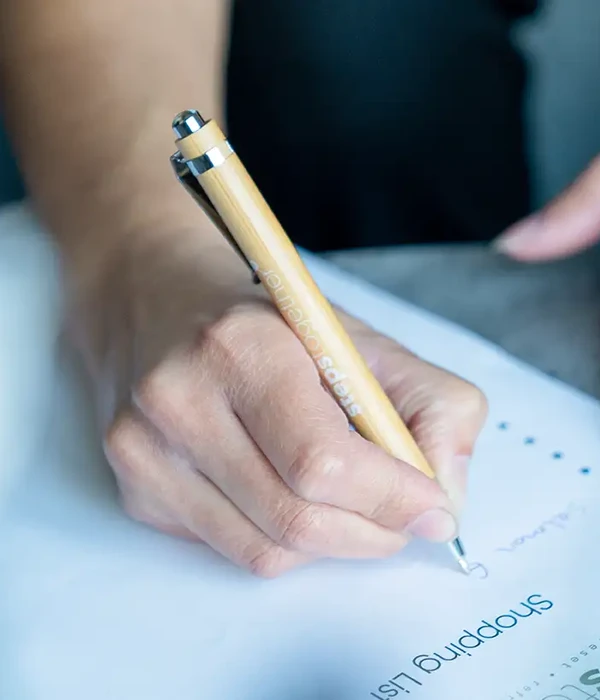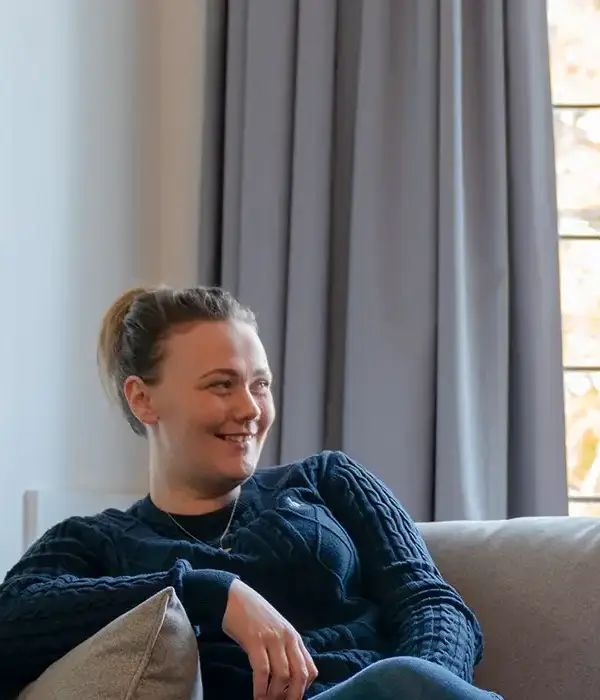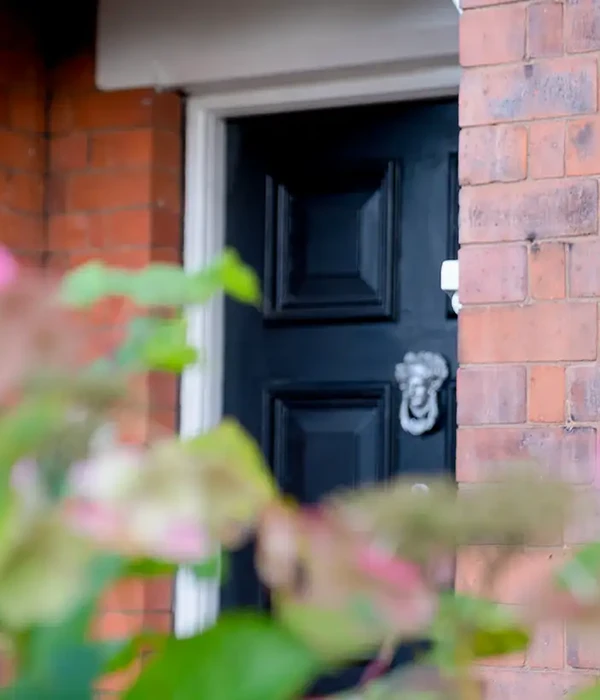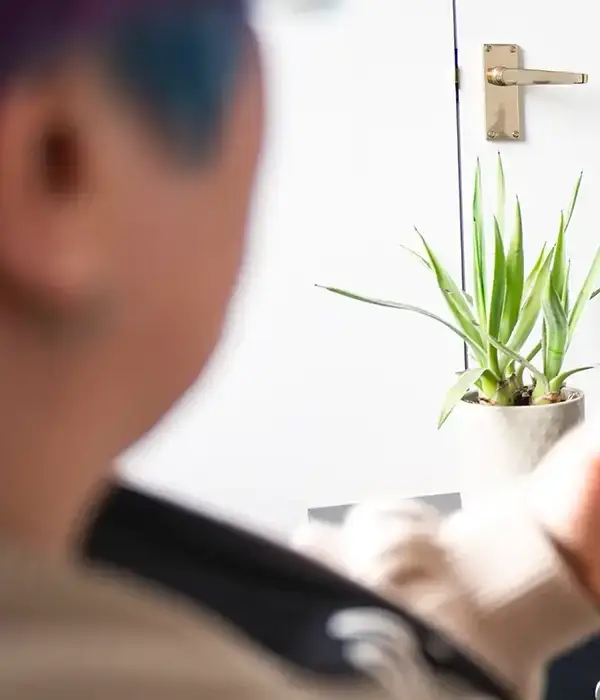Home Detox
Taking the first step to overcome drug or alcohol addiction can feel overwhelming, especially if leaving home is not an option. Home detox offers a way for you to start your recovery journey in a safe, familiar environment, often with support from professionals who can guide you through each stage.
Many people choose home detox because it provides privacy and flexibility. However, it’s important to understand that detoxing at home can come with health risks if not managed properly, especially if you have a long-term dependency.

Take the First Step Towards Recovery
Steps Together offers personalised support and proven treatments, providing the care, guidance and encouragement you need to move forward with confidence and build a healthier future.

What Is a Home Detox Service?
Home detox is a way for you to stop using drugs or alcohol while staying in your own home and not in a rehab centre. It aims to help you safely manage withdrawal symptoms without moving into a clinic or hospital. Home detox may be effective, but evidence supporting its safety and outcomes remains limited, especially when compared to medically supervised inpatient detox.
It is sometimes considered a form of outpatient detox, although not all outpatient programmes include home-based detox. The main goal of home alcohol detox is to manage withdrawal safely. Support usually includes a plan for taking medicines (if needed), information on what to expect, and help if problems arise. For people who need more structured care, a dedicated alcohol detox programme may be a safer option.
How Home Detox Programmes Work
A home detox programme starts with an assessment to see if it is safe for you to detox at home. This includes medical checks and questions about your substance use. You may be given medicines to help with withdrawal or cravings, and a support plan will be made for you.
Most home detox programmes offer daily check-ins, either over the phone or sometimes through home visits. Some programmes work closely with your GP or a private doctor. You may also get guidance for your family, tips for handling cravings, and information on staying safe.


Confidentiality and Patient Discretion
Home detox programmes in the UK take your privacy very seriously. Your details and health information are kept confidential at all times. Communication is often set up to be as private as possible, whether you are talking on the phone, online, or during a home visit.
Support staff do not share your details with others without your consent. Many home detox providers have rules and systems that make sure no one else knows about your treatment unless you say so. This allows you to seek help without worrying about your reputation or personal life being affected.
The Detox Process and Medical Supervision
Home detox allows you to begin recovery in your own surroundings while still receiving medical guidance and support. Medical supervision helps keep you safe, handles withdrawal symptoms, and makes sure the process fits your individual needs.
Initial Assessment and Risk Evaluation
Before starting a medically supervised detox at home, you go through a full initial assessment. Medical staff will review your health, alcohol use history, and any existing conditions. This step helps them spot possible risks such as seizures or complications related to withdrawal.
The assessment may include blood tests, medical check-ups, and mental health screening. It is designed to decide if a home detox is safe for you or if you would be better served in a clinic. This careful risk evaluation ensures that the level of supervision and care matches your situation.
The Role of Prescribed Medication
Prescribed medication is often used in alcohol home detox to help manage withdrawal symptoms. Common medications include benzodiazepines to reduce anxiety and prevent seizures, as well as beta-blockers for blood pressure.
Your medical team designs the medication plan to fit your medical history and the severity of your withdrawal. Dosages are carefully controlled and adjusted based on your progress. Proper use of medication lowers risks and makes the process safer and more manageable.
Medically Supervised Detox at Home
During home detox programmes, healthcare professionals supervise your progress either in person or remotely. You will get a treatment plan tailored to your needs, including a clear schedule for check-ins and daily contact. Nurses or doctors monitor your symptoms and adjust care as needed.
Supervision helps reduce the dangers linked to alcohol withdrawal, like dehydration, fits, or changes in blood pressure. Remote monitoring tools and phone or video calls make it possible to get check-ups even at home. Family or support staff may also be involved to help you stay safe and comfortable.
Comparing Home Detox and Inpatient Detox
There are important differences between alcohol detox at home and inpatient treatment. At home, you stay in a familiar environment and may feel more comfortable. You can keep your daily routine and privacy, which may make the process less stressful for some people. However, there is a risk that you will not have fast help if symptoms become severe.
Inpatient detox takes place in a hospital or clinic, where staff can monitor your health 24/7. You get medical support for withdrawal symptoms, including medication if needed. This approach is much safer for people with severe dependence, poor health, or a history of complications.
Services that our multi-speciality addiction rehabilitation centres offer

Drug and Alcohol Home Detox Explained
Drug and alcohol home detox can be a suitable option for individuals who need to stop drinking and drug use but cannot attend an inpatient drug rehab programme due to personal or logistical reasons. However, it’s essential to understand the process and potential risks involved.
Home detox lacks the constant medical supervision of inpatient settings, making it riskier, especially for those with severe substance dependence. Withdrawal symptoms can be unpredictable and sometimes life-threatening. It’s crucial to consult a healthcare professional and ensure proper support is in place, consider a medically supervised drug detox and rehab if appropriate.
Who Is Suitable for Drug and Alcohol Detox at Home?
Drug and alcohol home detox is usually only recommended for those with mild to moderate alcohol dependence. If you have a long history of heavy drinking or have experienced severe withdrawal in the past, you are at a higher risk of complications.
People with underlying health problems or mental health conditions may not be good candidates for detox at home. Detoxing at home should be planned with input from a healthcare professional. Medical supervision helps you deal with symptoms and problems that may arise.

Withdrawal Symptoms and Managing Risks
During alcohol detox, your body may react with various withdrawal symptoms. These can begin within a few hours after your last drink and include sweating and shaking, nausea or vomiting, headache, anxiety, insomnia, and rapid heartbeat. These symptoms tend to peak in the first 24 to 48 hours. Some people also report feeling irritable or restless.
Some people develop severe withdrawal, including a dangerous condition called delirium tremens (DTs). DTs usually appear 2-3 days into the detox process and can be life-threatening. DTs can cause coma, heart problems, or even death if not treated straight away.
To manage alcohol withdrawal at home, you need to prepare your space and set up safety measures. Make sure someone is with you and knows what to do in an emergency. If you start to feel much worse or notice new symptoms, contact a healthcare professional.
Therapeutic and Emotional Support During Home Detox
Home detox is more than just physical withdrawal. Addressing your mental and emotional wellbeing is crucial to long-term recovery and can help prevent relapse. Effective support blends practical therapy techniques with a strong emotional safety net.
Cognitive Behavioural Therapy in Home Detox
Cognitive Behavioural Therapy (CBT) is often used to help you understand the links between your thoughts, feelings, and behaviour during detox. It teaches you how to challenge negative thinking patterns and replace them with more useful ones. This can make a big difference when managing cravings and triggers.
Many home detox programmes include CBT because it provides clear, step-by-step strategies for preventing relapse. With a therapist, you may learn to identify situations that can make you want to drink or use a substance. You then practise skills to handle these situations safely.
Ongoing Support and Aftercare
Support does not end once the main phase of detox is over. Ongoing care helps you stay on track and deals with challenges that come up after detox. Common aftercare options include therapy, check-ins with a support worker, or attending regular group sessions.
Aftercare plans can involve coping strategies, relapse prevention, and continued CBT. Sometimes, new issues appear after physical symptoms fade, such as low mood or anxiety. Staying connected to support makes it easier to manage these feelings and avoid setbacks.
Emotional Support Networks
Having someone to talk to is vital when you are detoxing at home. Emotional support may come from family, friends, therapists, or support groups. Being listened to and understood can reduce feelings like shame, guilt, and loneliness, which often surface during early recovery.
Support networks can keep you motivated and offer encouragement when withdrawal symptoms are tough. You may join group therapy sessions or community groups that focus on recovery. This builds a connection and keeps you from feeling isolated.

Home Detox Treatment Can Get You Started on Rehab
Most people picture detox and addiction treatment as being under the watchful eye of medical professionals. While this is one of the safest ways to recover, home detox can also help you overcome drug use or alcohol consumption. For some, a structured drug detox programme provides the additional medical support and monitoring needed for a safer recovery.
By choosing this way to get started with a drug and alcohol rehab treatment programme, you can begin your recovery journey without going to a detox centre. With guidance from Steps Together, you can safely start your recovery from drugs or alcohol at home.
Frequently Asked Questions
Can you do a detox at home?
While some people may attempt drug or alcohol detox at home, it can be risky due to possible withdrawal complications, including seizures, dehydration, or severe mood changes. Professional supervision ensures safety, comfort, proper treatment, and provides emotional support, and reduces the risk of relapse during early recovery.
How to quit drugs at home?
Stopping drugs at home begins with a strong commitment and a safe plan. Begin by removing all substances and triggers from your environment. Stay hydrated, eat nutritious meals, follow the advise of your healthcare professional, and get plenty of rest to support your body during withdrawal.
How long does withdrawal last?
Withdrawal length varies by substance, usage history, and individual health. For many drugs and alcohol, acute symptoms last a few days to a week, while less severe effects like fatigue, mood swings, or cravings can persist for weeks or even months.
What can make home detox safer?
Home detox can be made safer by consulting a medical professional and having an immediate support system. Monitoring symptoms closely and seeking urgent help for severe reactions is essential for long-term health and wellbeing.
What can I use to detox at home?
Detoxing from alcohol and drugs at home involves stopping substance use while supporting your body. Water, food, rest, and a calm environment can help. Some over-the-counter medications may ease mild withdrawal symptoms, but medical supervision and professional support are strongly recommended.





